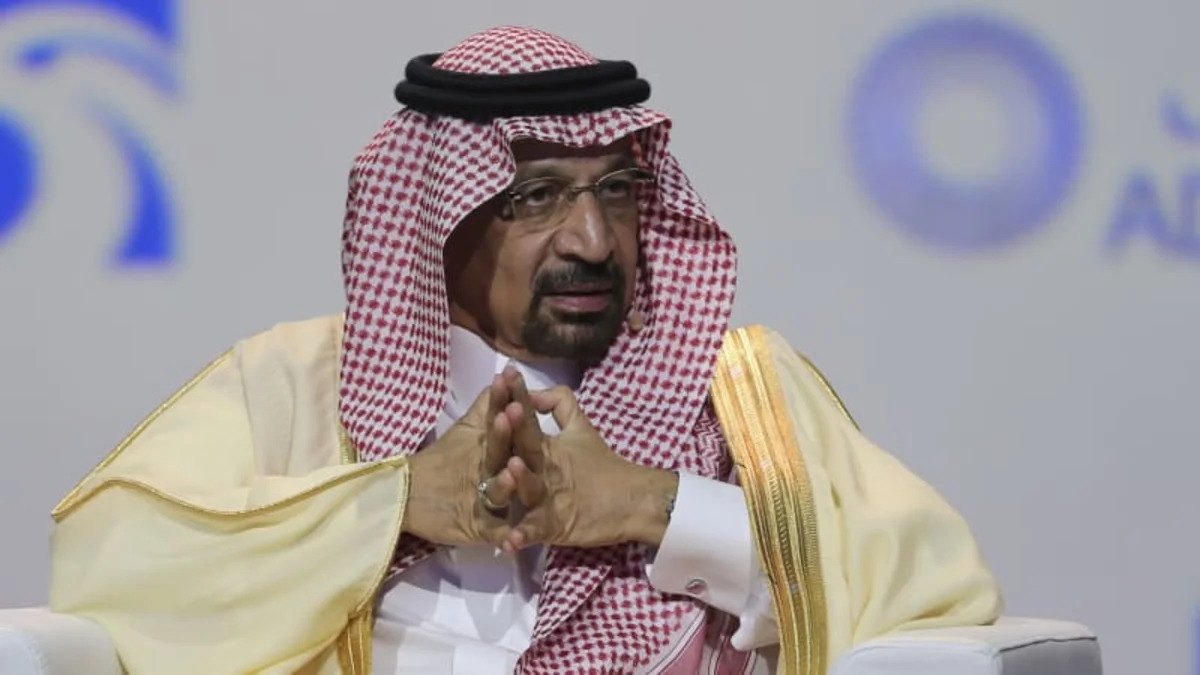Khalid Al-Falih (AP)
The world’s biggest oil producer is now also aiming to become a key hub for making batteries for electric vehicles, as Saudi authorities look for new ways to diversify the economy and develop a domestic auto industry.
Saudi Arabia is looking at investing in the production of EV batteries and manufacturing hydrogen-powered vehicles as the next step in its plans to build a nexus for carmaking in the Middle East, Khalid Al-Falih, the minister of investment, said in an interview with Bloomberg Television.
“What’s next is the supply chain,” Falih said Wednesday during the Bloomberg New Economy Forum in Singapore. Authorities “hope that EV batteries will be a key supply chain manufacturing opportunity.”
Seven years into Crown Prince Mohammed bin Salman’s program to wean the country off hydrocarbons, focus is increasing on manufacturing after scant progress in diversifying an economy that still relies on oil and its close derivatives — petrochemicals and plastics — for more than 90% of its exports.
Saudi efforts are now also zeroing in on renewable energy and mining minerals needed to develop battery chemicals. Saudi Arabia has already set a target for producing 500,000 electric vehicles by 2030.
As the kingdom looks to create a wider network of suppliers around its nascent auto industry, the Saudi wealth fund has agreed on a deal with Pirelli SpA to build a more than $550 million tire plant that would serve companies including EV maker Lucid Group Inc. and Hyundai Motors Co., which are developing plants on the west coast of the country.
As part of an effort to attract foreign talent and investment, Saudi Arabia this year restricted state entities from doing business with international companies that don’t have their regional headquarters in the country by January 2024. It’s set a year-end target for having 160 global companies run their Middle East operations from Saudi Arabia.
Al-Falih said upward of 180 licenses have been issued for companies to qualify for special incentives provided to those setting up a regional headquarters. “The rate is picking up to the tune of 10 companies per week that are being licensed,” he said.
Besides firms that include industrial companies, some banks have also made the kingdom into their regional hub, Al-Falih said, declining to name them.
The kingdom on Wednesday sharply revised up its estimates for foreign direct investment into the $1.1 trillion economy as a result of a change in methodology. Inflows last year are now estimated at $33 billion, more than quadruple the previous assessment of $8 billion.
Al-Falih said Saudi Arabia used to rely on its central bank for FDI estimates but it’s now “transitioned to the gold standard system of accounting per the IMF methodology, which is to actually measure the last dollar from the financial statements of all registered international investors in the kingdom.”
The minister said he isn’t worried about a potential pause of investment flows into the region because of Israel’s war against Hamas, especially given the opportunities on offer in Saudi Arabia.
“We tick all of the boxes,” said Al-Falih. “Beyond the current situation in Europe and the Middle East tension here and some parts of Asia, people will look around and find Saudi Arabia is the best destination to invest.”


Sign in to post
Please sign in to leave a comment.
Continue